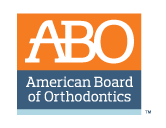Why choose an orthodontic specialist over a general dentist?
August 8th, 2017

Patients have so many choices for straightening their teeth nowadays — clear aligners, ceramic braces, lingual braces, self-ligating braces — but who is best suited to guide them through orthodontic treatment? Well, an orthodontist like Dr. R. William Barnard and Dr. Nia Jones in Omaha of course!
This may seem obvious, but there’s misinformation circulating with regard to the roles dentists and orthodontists play in treating patients’ oral health.
Dentists are trained to clean teeth, fill cavities, perform certain dental surgeries, and examine overall oral health. Many dentists now offer braces to their patients, but according to the American Association of Orthodontists, it’s better to consult an orthodontist if you need to straighten teeth or fix a bite.
Why an orthodontist? Because they are...
- Specialists in straightening teeth and aligning jaws, even advanced cases
- Required to study an additional two to three years after dental school
- Trained to choose the correct treatment option because they have worked with all the available options
- Trained to recognize the potential pitfalls with certain treatments and cases, which means there’s less chance of problems after treatment has started or been completed
- Familiar with emerging treatments and technologies so they can make the best choice for a patient’s case
Some dentists claim to have taken enough continuing education or additional training to offer braces to their patients. But this can't compare to the advanced training an orthodontist receives during his or her education.
Ideally, dentists and orthodontists work hand in hand to make sure oral health and the alignment of teeth and jaws are the best they can be. Think of a dentist as the one who is there for a lifetime, to make sure teeth and gums are healthy.
In contrast, an orthodontist is the highly skilled teammate who helps the dentist by straightening teeth and aligning the jaws over the course of a few years. Instead of one replacing the other, they work together for the health and benefit of their patients.
Is adult orthodontic treatment for you?
August 1st, 2017

Adult patients who seek orthodontic treatment usually fall into one of two camps: those who did not undergo orthodontic treatment as a child or those who had braces at one point but stopped wearing retainers for one reason or another.
At R. William Barnard Orthodontics, we are happy to offer a variety of treatment options to straighten our patients’ teeth. Dr. R. William Barnard and Dr. Nia Jones and our team believe you’re never too old to straighten your teeth. And we have many adult patients who are currently undergoing treatment. In fact, did you know that roughly 30 percent of all orthodontic patients these days are adults?
Invisalign® is a great treatment option for adults. The Invisalign aligners are easy to wear and are not visible to most people. Plus, Invisalign's clear aligners are removable, so there are no restrictions on what you can eat during treatment. When considering Invisalign, we tell adults to determine if they can be diligent about wearing the aligners at all times and make them part of their lifestyle for the duration of treatment.
If you have been thinking about obtaining a beautiful smile, please give us a call at our convenient Omaha office for an initial consultation. Dr. R. William Barnard and Dr. Nia Jones and our team welcome children, teens, and adults alike. Call us today for an appointment!
Why should I have my child’s wisdom teeth removed?
July 25th, 2017

The wisdom teeth are the last of the permanent molars to emerge from the gums. This can occur as early as age 17 or as late as 21. Though some teens and young adults experience a completely normal tooth eruption with ideally aligned molars that pose no health threat, this is not the case for everyone.
According to the American Association of Oral and Maxillofacial Surgeons (AAOMS), wisdom teeth must meet specific criteria to avoid a required extraction. These guidelines include:
- Completely erupted and non-impacted
- Completely functional
- Painless
- Free of decay
- Disease-free
- Capable of being properly cleaned
If one or more of your child’s wisdom teeth do not meet these conditions, we recommend scheduling an appointment with Dr. R. William Barnard and Dr. Nia Jones; an extraction may be necessary.
Impacted wisdom teeth
One of the most common reasons for extracting a wisdom tooth is due to impaction. An impacted wisdom tooth is one that has not erupted and will not fully erupt from the gums. Usually this occurs because there is not enough room for the tooth to emerge. Impaction can be painful and can also lead to infection if left untreated. According to the AAOMS, roughly 90 percent of the teen and adult population has at least one impacted tooth. Extracting an impacted wisdom tooth early can help prevent future complications, such as periodontal disease, infections, and damage to neighboring teeth.
Extracting fully erupted wisdom teeth
Even if your child’s wisdom teeth are fully erupted, Dr. R. William Barnard and Dr. Nia Jones and our team at R. William Barnard Orthodontics may recommend removing them as a preventive measure. Fully-erupted third molars often interfere with a healthy bite. This can lead to problems with tooth and jaw alignment and may also contribute to the development of headaches. Your child’s wisdom teeth may also be more prone to tooth decay and gum disease, because their location in the back of the mouth makes them more difficult to reach for brushing and flossing.
To learn more about wisdom teeth, or to schedule an appointment with Dr. R. William Barnard and Dr. Nia Jones, please give us a call at our convenient Omaha office!
Invisalign® and Invisalign Teen®
July 18th, 2017

There are so many adults and teens in our Omaha office who would love to have their teeth straightened but that are unwilling to go through the long and unsightly process of traditional metal braces. Well, that's where Invisalign® and Invisalign Teen® come to the rescue; the most advanced clear aligner systems in the world!
There are several reasons why, if you're considering getting braces, you should consider Invisalign too. Here are some of them:
- You can eat whatever food you'd like, without worrying about it getting caught in wires or breaking brackets.
- Most people won't even know you're wearing them!
- If you need to, you can remove your aligners at any time.
- The removable aligners let you brush and floss as you normally would, making for better overall oral health.
- Since they are made of a smooth BPA-free plastic, Invisalign aligners are simply more comfortable to wear than traditional braces. No metal means no more roughed up gums or irritated tongue!
- You'll need to visit our Omaha office less often — only once every six weeks or so.
- With Invisalign Teen, you’ll receive up to six replacements for lost or broken aligners.
Before you get started with treatment, you’ll have a consultation with Dr. R. William Barnard and Dr. Nia Jones to see if Invisalign or Invisalign Teen is right for you. If your case is a good fit, then you’ll have X-rays, pictures, and impressions of your teeth taken. That information will be used to make the 3D models of your teeth that let Dr. R. William Barnard and Dr. Nia Jones see how they will move throughout the entire treatment and approximately how long it will take.
After that, you’ll receive your aligners based on the treatment plan we recommend. You’ll get a new set of aligners every two weeks. Then all you need to do is wear your aligners 22 hours a day and you’ll be on your way to a straighter healthier smile. Don’t hesitate to a member of our Omaha team for more information about Invisalign!










